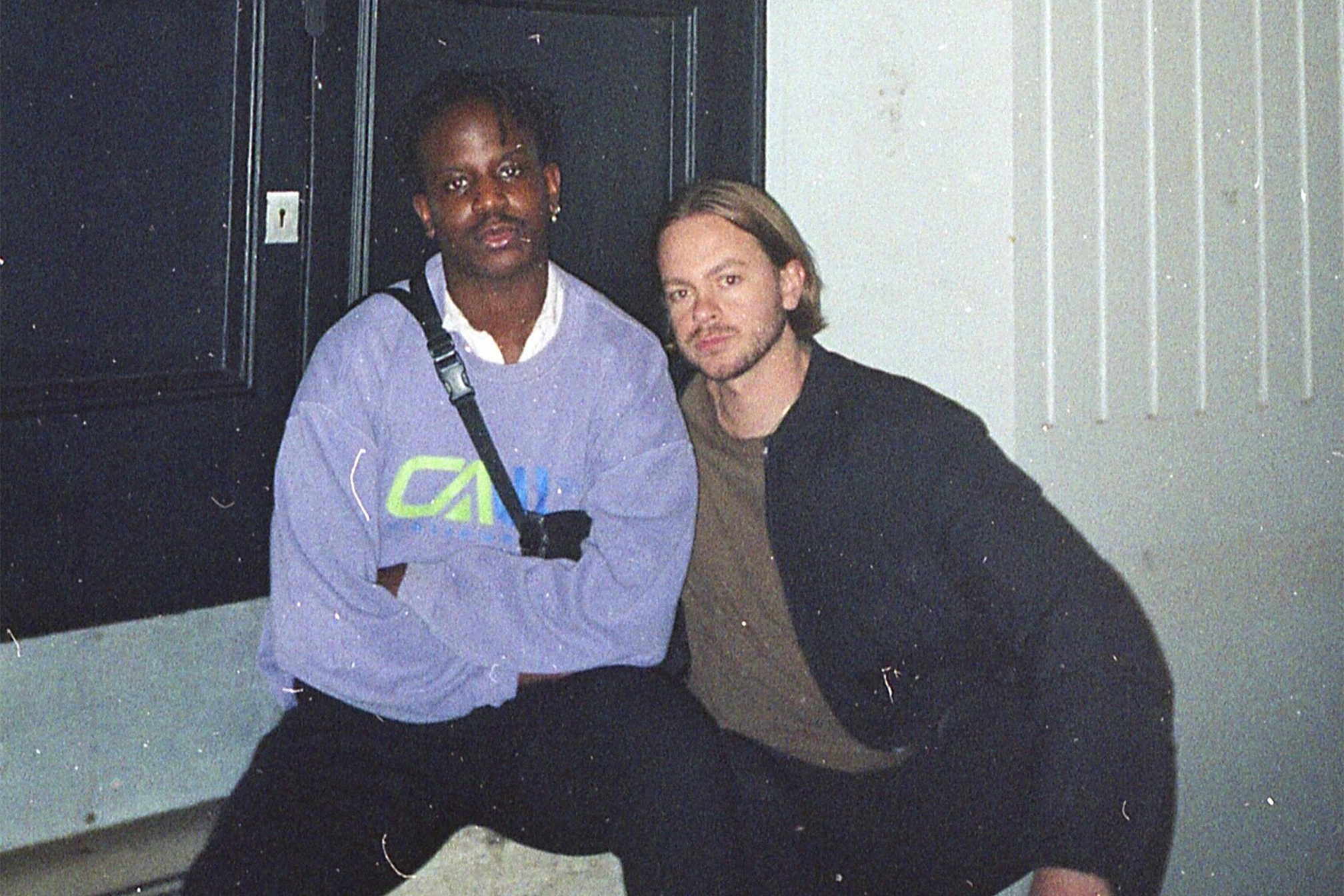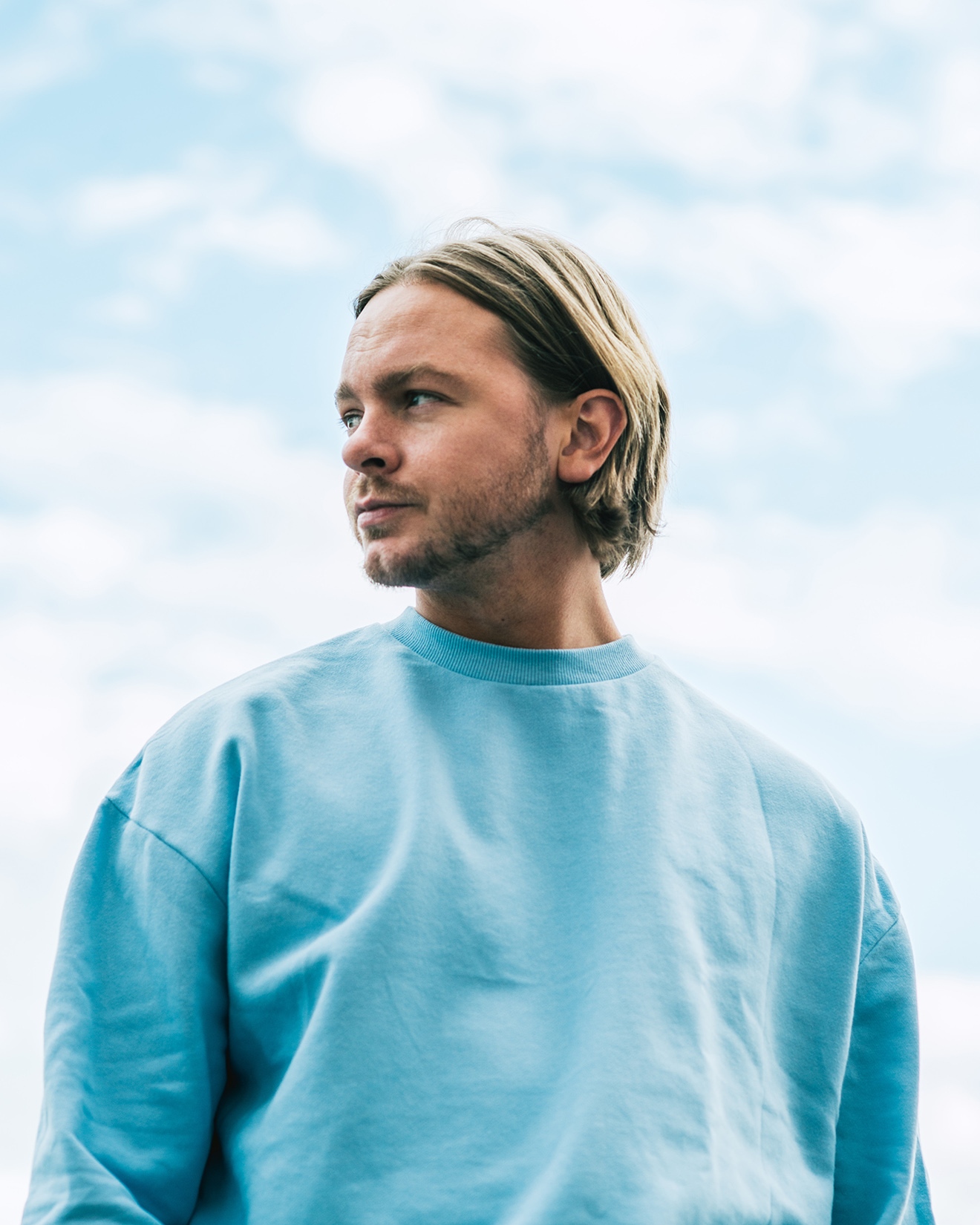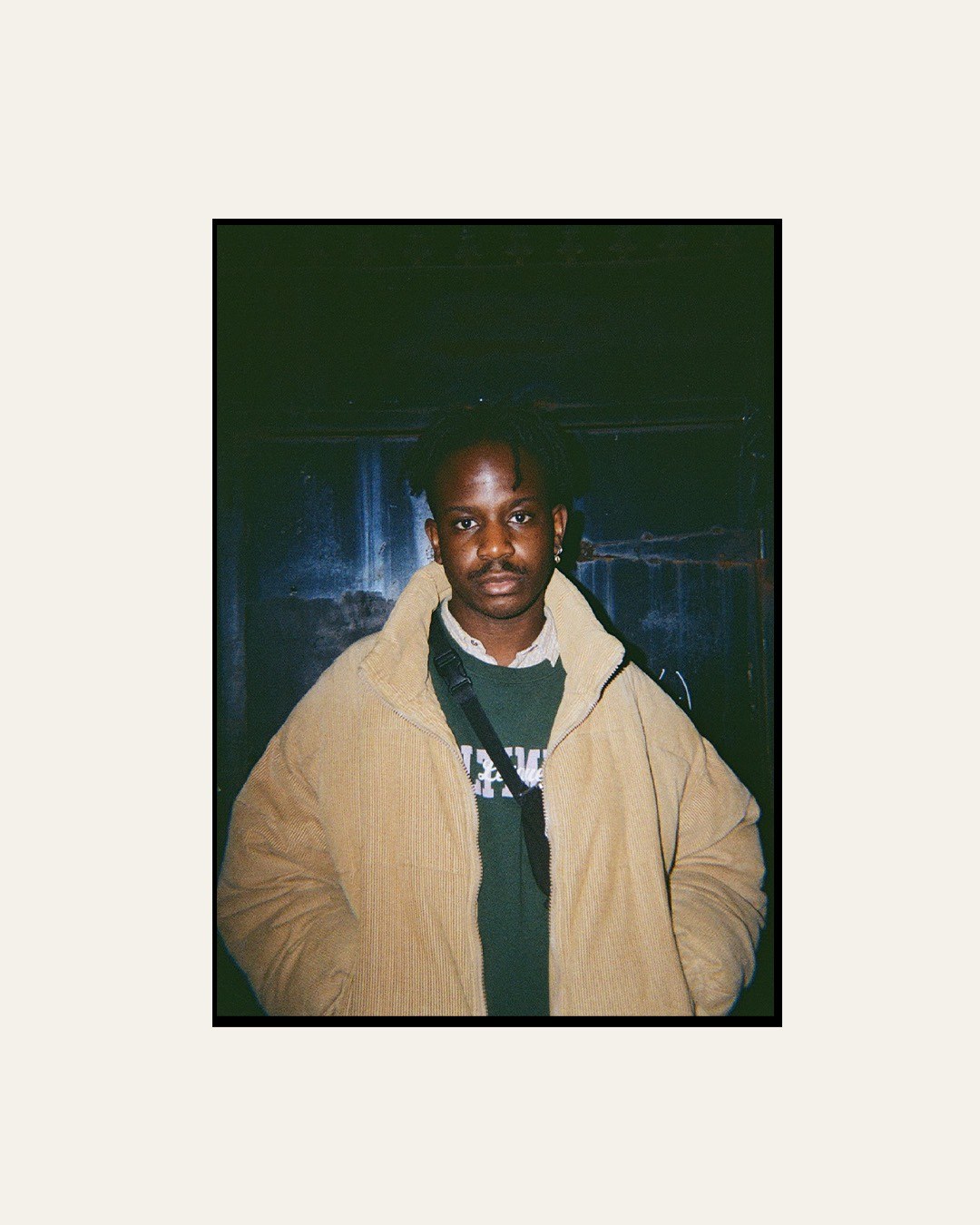 Features
Features
DJ Seinfeld and salute talk Gen Z, Manchester and fast-paced club tracks
As the skies of clubland open once again, Gemma Ross catches up with Felix and Armand ahead of their Return To The Depot
“I've told you this so often, but your sound has influenced mine a lot,” says salute, real name Felix Nyajo, when he catches up with friend and collaborator DJ Seinfeld. “So, it makes sense for me to play your stuff."
The budding friendship between two of Europe’s most promising producers has led to endless joint shows, a collaborative track, and a kinship transcending both of their musical careers. Armand Jakobsson, better known as DJ Seinfeld, also shares that same appreciation for the Manchester-based artist’s music. On salute’s rework of ‘Someday’, a track taken from DJ Seinfeld’s acclaimed second album 'Mirrors', the producer lends his hand to the downtempo house stylings of the track with an edit that flips both artists’ distinct sounds. It was one of few to lay down on the ‘Mirrors’ remix pack and the first to be picked out of the pile by the Swedish artist. “We had to get a list of names for the remix album and Felix was the first one for me to jot down,” says DJ Seinfeld. Since then, the two have enjoyed a crammed summer schedule together, often meeting somewhere along the way.
Read this next: How a period of reflection led DJ Seinfeld to discover his true artistic self
Just a week ahead of one of their last blow-out shows of the summer at The Warehouse Project, we sat down with DJ Seinfeld and salute to chat about all things gigging. Read the pair in conversation below.

I know this isn’t the first time you’re meeting, you must have played hundreds of parties together recently! When was the first time you actually met?
salute: Maybe not hundreds, but definitely not enough!
DJ Seinfeld: No, not nearly enough.
salute: We first met at Lost Village last year...
DJ Seinfeld: Yeah, that was the first time we met. Was it actually last year? That’s gone so fast, Jesus Christ.
salute: Yeah it was because we met again at Parklife a few weeks after. We met Four Tet and Peggy Gou for the first time that night.
DJ Seinfeld: Exactly, and I got way too drunk. I had successfully suppressed any memories of that night until now! [Laughs]
What happened?!
DJ Seinfeld: Nothing bad, per se. I just told funny stories that lack context for those people, I guess it was the drunken confidence. I just walked into a trailer and started, in my mind, telling really funny stories, but I don't think that it went down like that.
salute: Nah, you were fine, man! We were actually in a transfer back into town with Four Tet and his manager and we just had a normal conversation, they're both really nice people. I was trying my best to just be as quiet as possible and not say anything.
Was it an instant friendship between the two of you?
DJ Seinfeld: Yeah, I would say so! I mean, so far, we haven't had any dramatic hiccups.
salute: Haha! I can't imagine a situation in which that would happen. But you know, maybe next year we'll be sworn enemies somehow. [Laughs]
There are a lot of similarities between your productions recently, you both incorporate a lot of uptempo house and garage stylings. What is drawing you both to that higher tempo sound at the moment? Do you think this is where dance music is going?
salute: For me personally, it started out as a nostalgia thing — I was kind of bored of what I was hearing in 2017/2018, I missed that era between 2010 and 2013. People just pushed the boat out a little bit more. People like Mount Kimbe and SBTRKT were incorporating garagey sounds, but mixing them with other influences. I thought to do the same, and I just feel like that energy is what was lacking in dance music. That was just my attempt at bringing that back or trying to replicate that feeling.
DJ Seinfeld: I quite liked playing slow stuff as well, but I think over time, the fast-tempo stuff that I enjoy listening to was not always made. It was a lot of old stuff from the nineties and early 2000s. When you go out and play that stuff on a big stage it’s great, but different in terms of how it's mixed and mastered. Today's productions from the new generation like Felix, that music that's coming out is incredibly well produced and it goes down really, really well. For a while, I think I sort of — not shunned it away — but I think I’d just never paid attention to it as something I would play out or in a club, especially at big festivals. But now, because there's so much good music coming out in that kind of fast-paced garage and soulful music sound, I think it's piqued my interest again. It's inspired and influenced me in terms of what I'm gonna try and do next.
Read this next: The Warehouse Project is one of the world's best clubbing experiences – and these pictures prove it
I'm guessing you play a lot of each other's music live?
DJ Seinfeld: I mean, I definitely play a lot of his!
salute: I definitely do as well. I have my edits of his tunes that I play out as well. ‘Cause I mean, I've told you this so often, but your sound has influenced mine a lot. So, it makes sense for me to play your stuff.
DJ Seinfeld: Don’t make me blush!
Can we see some more future collaborations from you both?
DJ Seinfeld: I’m down whenever.
salute: Ah, I hope so, man. It has to happen. It's just scheduling and trying to find time together that's so difficult.
DJ Seinfeld: Yeah, I assume it’s been a similar thing for most touring artists this summer. For me personally, it's been a massive chaotic whirlwind of essentially being everywhere and nowhere at the same time. Some production things have literally been swept away to the very corners of my mind. But now I'm super excited that festival season is over and you actually have more time to work on music and figure out what you wanna do. It seems like, for me at least, the summer season means there's no creativity. You go out there and do the shows and then sort of brace yourself until the storm is over. I feel that creeping in, this sort of yearning to actually make music again. I don't know how it was for you, Felix, but I assume it's the same.
salute: I’m also really glad that festival season is over. I loved it, but I'm so glad it's over. Even though September is busier than any of my summer months, which means I can't really get back to it as soon as I want to. But for some reason, being in a club is way more inspiring to me musically than being at a festival. I come away from festivals with a lot of ideas, but for my production, even if I'm really busy, I still feel more motivated to find the time to make music in between shows when I have a few days off. Even though I have shows left and right, now's the time I'm actually taking a moment to make some music. In the summer, I barely opened my laptop at all.

Do you think that influx of live show bookings is down to everyone wanting to go back out again post-COVID? Or do you think this has been a slow trajectory to where you are now?
salute: It's probably a bit of both. Like after lockdown, people wanted everything tenfold. Promoters had to make up for that demand, and obviously it's dwindling now a little bit and people aren't wanting to go out as much because it's expensive. People can't afford it with the cost of living crisis. But I still feel like there is momentum there for me at the minute which is really great. Since the end of lockdown, it's been really positive to see that people are resonating with us, with the stuff that I'm making at the minute, it's a great feeling. It's been a long time coming.
You’re set to play The Warehouse Project this weekend, I take it you’ve both played before - what’s special about that party?
DJ Seinfeld: For me, it's overwhelming but in all the right ways. There's no club quite like The Warehouse Project. The lineups are essentially like a full-scale festival every weekend, twice a weekend! I've been playing there for a couple of years, and I don't know how they use SOUP now, but back in those days, they would put up-and-coming producers and DJs there to see how they fare and how they perform as a graduation step into actually playing at The Warehouse Project, so I was doing that. From the very start, I’d seen this gradual process of playing the smaller stage and then over time, it caught wind and got bigger and bigger. Every time I go there, I can see how it's developed. It's nice to have amidst a lot of self-doubt about everything in terms of music, and nice to have that reaffirmed every now and then that you're still at that stage. The people who work there are super nice as well!
Felix, I know you’re based in Manchester - is it quite a big deal for you to play The Warehouse Project?
salute: 100%, especially as someone who doesn't come from Manchester — I grew up in Austria. Just being accepted into what I feel is an amazing scene of people in dance music, and outside of it, and being able to play these shows which to me are some of the most important shows you can play in the UK. It's a really great feeling. The crowds are always amazing and, as Armand said, the staff are amazing as well. I feel like the musical diversity that you find at The Warehouse Project across shows is just incredible. Like there was one show in 2018 I think where Mura Masa put on Black Midi and Vegyn. Then you can go to another The Warehouse Project and watch KiNK. That to me is just incredible, I feel like a lot of Mancunians don't really understand quite how spoiled we are to have line-ups like that! Growing up in Vienna, we would've never seen anything like this at all, ever. Yeah, Manchester is very lucky.
Armand, you’ve been touring the globe recently but you’ve got a huge fanbase here in the UK. How do you find the crowds in the UK? Is it somewhere you enjoy playing?
DJ Seinfeld: In terms of the crowd, it's quite unmatched. I think the only crowds that are on a similar level are Australian crowds. The biggest difference is, when you go to big cities like Manchester, Liverpool, and London, the venues are usually bigger and there are more people. Before the pandemic, I found that the crowds were just super nice and engaging in all the right ways, or most of the right ways. After the pandemic, a little bit of that was lost. We all had to face a new generation of people who didn't quite know how to party and how to treat the nightlife. It's mostly been great with the UK audiences, but every now and then I see the backlash of the pandemic in terms of the inexperience in handling alcohol and drugs and all these kind of things. I think it's gonna take another two or three years before things are sort of normalised and the culture of actually going out has stabilised a little.
It's interesting you say that - there have been some reports recently finding that Gen Z are stepping away from raving and nightlife now. Do you see that in the crowds when you play in comparison to pre-pandemic?
DJ Seinfeld: One of my suspicions is that the idea of raving has become quite performative. I think now, with TikTok and Instagram you see all these videos going viral about what going to Berghain is like, how a raver should and shouldn't dress. Then it's intermingled with horrible reports of needle spiking and all these kind of things. So, I think social media has at the same time hyped it up into something massive, but I think a lot of people see it from the outside and go, ‘yeah, that's probably not for me’.
salute: I agree. Especially with the pandemic and students not being able to be at university where usually you’d be around people telling you to come to this event, come to that club, we’ll teach the ropes. That's a huge way in which kids fall in love with electronic music, within the first years of university. Because everyone was just at home, we didn't have that physical connection, it just wasn't there. That's why after lockdown a lot of these kids were like, ‘we don't really know what to do. We haven't got a taste for this'. But I wouldn't say that I'm not seeing a lot of young crowds at my shows, because there really are a lot of 18, 19-year-olds. Keep Hush did a survey recently, actually, in which they talked about this and asked a big group of 18 to 30-year-olds about what motivates them to go out. I think there’s a need and a want for it like Armand said, but I think it would need a little bit more time before stuff settles again.
Read this next: Gen Z are finding music through video games
What’s next for the two of you? Have you got anything in the pipeline?
salute: I do, although I'm not really sure how much of that I can say! I'm going on tour in America at the end of November, and then I'm going on tour in the US sort of towards the end of October. After that I'm just working on the next single which will be along the same lines of ‘Therapy’ and ‘Joy’, and then working on some remixes too. Basically, I've got a flood of stuff coming up!
DJ Seinfeld: For me, I haven't really planned anything, I have a few remixes coming out. Then next year I’m retiring my live show so I'm only gonna do club stuff next year, DJing. That’s gonna be quite nice because I'll need some time to work on the next albums and the next projects and rework some ideas. We’re working on some ideas for residencies in big cities around the world, but I wanna go down in size. It’s not yet set in stone, but the idea is just to take a step back and try to rebuild some communities and scenes here and there and touch base with the places where I initially came up from.
For more info on this weekend's Return To The Depot at The Warehouse Project, head to thewarehouseproject.com.
Gemma Ross is Mixmag's Editorial Assistant, follow her on Twitter


